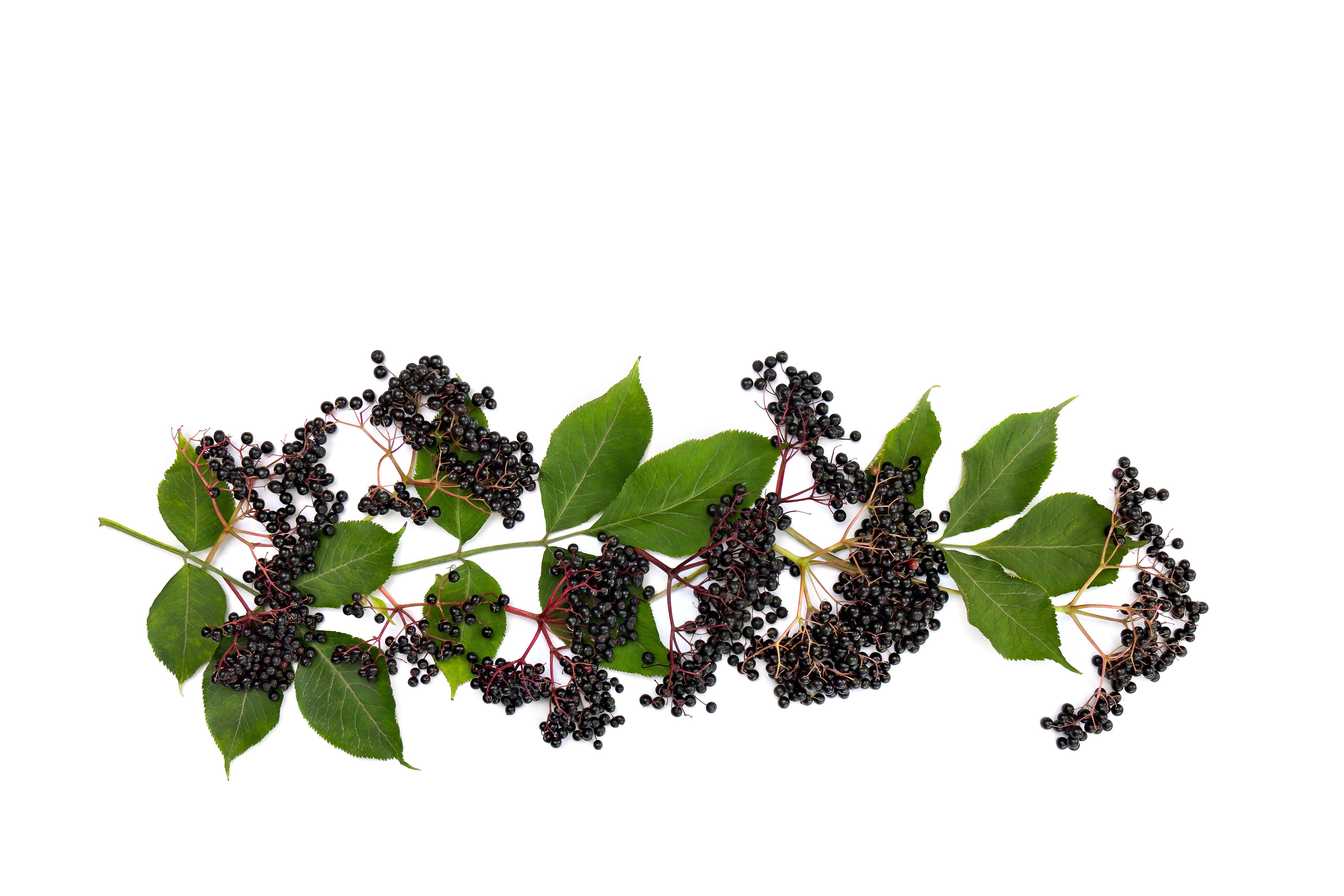Botanical and herb suppliers are carefully monitoring supply and logistics in 2021
As demand for certain plant materials escalates, the reality remains: Supply is everything.
Photo © Anastasiia Malinich - Stock.adobe.com

Dietary supplements have been changed by COVID-19. An increased demand for immune-health products since last year has brought new business to the category and to certain botanical ingredients in particular. While the unique state of global affairs might not be impacting all health product manufacturers, some are at risk of COVID-related ingredient supply shortages and other obstacles. Inventory must be properly planned and managed, as is always the case, and longstanding relationships with trusted industry partners are now all the more important as they can help brands avoid undue challenges and risks.
So, which ingredients are shining in current COVID times, and what factors may influence their availability?
Supply Chain Logistics
The COVID-related barriers to smooth commerce are many, according to ingredient suppliers interviewed recently. Indena S.p.A. (Milan, Italy), a supplier of botanicals such as boswellia and echinacea, cites transportation congestion and price surges as challenges affecting all businesses in Asia. Draco Natural Products Inc. (San Jose, CA) reports longer-than-usual transit times for ingredients, as international shipments that were once direct may now have multiple stops due to shortages of cargo containers and longer wait times at customs because of social distancing and sanitation requirements.
With international trade moving slower than usual, some ingredient suppliers are turning to the local governments in their growing regions and finding that governments are willing to prioritize and permit certain business activities. “We proactively and collaboratively worked with the Indian government and authorities to prioritize and expedite customs clearance of essential products,” says Sabrina Di Blasio, director of corporate communication and branding for OmniActive Health Technologies (Morristown, NJ), a supplier of marigold-based and other botanical ingredients grown in India. “When air shipments resumed, the airfare cost was almost four times higher than before lockdown. [OmniActive] coordinated a weekly Air India flight for essential industries, and when sea shipments continued to be a challenge, we worked diligently with port officials to overcome manpower availability for loading and unloading as well as port congestion.”
The many operational delays are, of course, compounded by the year-to-year unpredictability of Mother Nature, which can significantly impact harvest yields.
“COVID-induced disruptions have exposed the fragility of global supply chains,” says Anand Swaroop, PhD, president of Cepham Inc. (Somerset, NJ), a supplier of many botanical ingredients grown overseas. “We have learned that there is an urgent need to revisit old assumptions grounded in supply chain reliability and stability.” He emphasizes that an important way of doing this is to build flexibility into one’s supply chain in order to adapt to sudden changes in demand for product and quantity.
Immune-Health Ingredients
Botanical ingredient suppliers are seeing strong sales growth for ingredients that are associated with immune-health use, regardless of any impediments that may be in the way of adequate supply. These ingredients are being sourced from different parts of the world, so every situation is unique.
“The most famous immunity herb in Traditional Chinese Medicine is astragalus, so it’s no surprise that it’s the winner as far as increase in demand,” says Wilson Lau, vice president of Nuherbs Co. (San Leandro, CA). He says Nuherbs is having no issues procuring organic astragalus because the company has its own growing area in China as well as a backup option. Lau adds that an unexpected increase in demand for honeysuckle was managed, despite heavy rains impacting yield, thanks to extensive grower relationships.
Draco is seeing strong sales of astragalus, too, as well as demand for mushrooms like reishi and lion’s mane, which have long been associated with immune-health use. The company’s R&D Director Brien Quirk expects andrographis, a bitter-tasting herb, to increase in demand as news spreads around the world that the government of Thailand this past winter approved of the ingredient’s use for treating COVID-19.
In the Americas, elderberry sales are rising because of this berry’s traditional history of use for managing viral infections such as influenza. Ramon Luna, marketing coordinator for Ecuadorian Rainforest LLC (Clifton, NJ), says demand for elderberry was already steady before demand skyrocketed in the first half of 2020, noting that “Elderberry is now one of the most difficult commodities to keep on shelves, as it’s out even before it comes in.”
A less-obvious market that has opened up in response to the COVID-19 pandemic is for ingredients associated with relaxation and calming effects, such as passionflower, valerian root, and chamomile. Has access to these smaller players suffered?
Lau of Nuherbs admits that while his firm hasn’t had difficulty sourcing less-popular ingredients, there can be a bottleneck in processing the material for shipping during this time. “There is only so much material that our facilities can process and package in a day,” he says. “It’s harder to justify space on the processing line for herbs that are less popular, because of the setup, cleanup, and time associated with switching over from one herb to another. That being said, we consider ourselves partners with our clients. We are here to solve their issues, which includes getting them the herbs that they need even when it may not be optimal to our operations. We understand that without a particular ingredient, no matter how small the quantities used are, they may not be able to make a product, and we want our partners in the supply chain to be successful.”
In times like these, working with suppliers who have longstanding history in the industry, trusted relationships with growers (if not vertical supply chains), and plans in place for the unexpected can help manufacturers avoid catastrophe.
Adulteration in Response to COVID?
In light of the latest increased demands for certain botanicals, some wonder if adulteration risks are now greater. Sabinsa Corp. (East Windsor, NJ), a supplier of turmeric and other botanical ingredients, says that buyers are being ever more vigilant because adulteration is always a danger when demand is high.
Bad actors may have greater incentive to adulterate products now, but there are Good Manufacturing Practices (cGMP) rules in place that, if followed, help mitigate these risks. “The cGMP rule makes it very difficult to get adulterated products into market,” says Michael McGuffin, president of the American Herbal Products Association (AHPA; Silver Spring, MD). “The regulation is so tough that if you try to sell me something not turmeric, you have a requirement to do more than read the label. You have to conduct at least one test or examination to verify that it’s turmeric. For every single lot of botanical you receive, you’re required to conduct one test to verify its identity.”
While the regulations are stringent, not every brand has the financial resources to invest in expensive laboratory testing equipment and staff. Fortunately, economical test methods are available as well as third-party lab services and a variety of publicly available guidance materials.
The American Botanical Council (ABC; Austin, TX) has made available a wealth of educational material through its Botanical Adulterants Prevention Program (BAPP), including bulletins that detail the methods bad actors might use to adulterate their products and laboratory guidance documents that offer available test methods that are sufficient for verifying product integrity.
“The fact of being a small brand does not exempt a manufacturer from testing requirements,” points out Stefan Gafner, PhD, ABC’s chief science officer and BAPP’s technical director. “For this reason, our laboratory guidance documents assess a number of tests for their appropriateness to determine the authenticity of a material, including macroscopic and microscopic identification, and simple chemical assays if such tests are available… Some of these tests can be performed at a reasonable cost and are definitely within the budget even for a small manufacturer.”
ABC made available a turmeric laboratory guidance document last year at just the time when turmeric suppliers cautioned that the COVID-19 pandemic was causing heightened demand. A paper on elderberry adulteration is currently in peer-review.
Any ingredient supplier and industry member will tell you that best practices during times like these are to work with companies you trust—but to always do your due diligence.

Polyphenols: The next generation of prebiotics is ready for liftoff
April 21st 2025Explore the prebiotic health benefits of polyphenols and the positive impact they may have on digestive and immune health. Polyphenols, such as those found in European black elderberry, may be an ideal solution for manufacturers trying to break into the digestive health space.
Prinova acquires Aplinova to further increase its footprint in Latin America
April 7th 2025Prinova has recently announced the acquisition of Brazilian ingredients distributor Aplinova, which is a provider of specialty ingredients for a range of market segments that include food, beverage, supplements, and personal care.

.png&w=3840&q=75)

.png&w=3840&q=75)



.png&w=3840&q=75)



.png&w=3840&q=75)





















